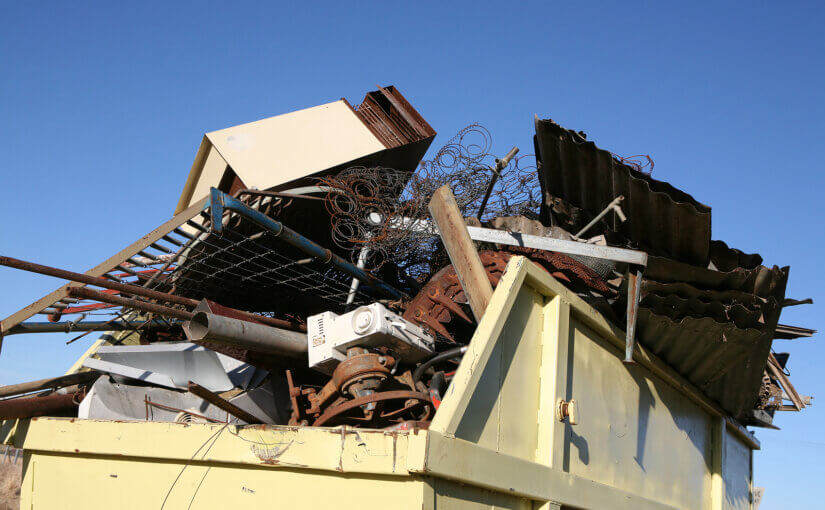Poor waste management is largely caused by incorrect waste disposal, which can pollute the earth’s water, air, and soil resources.
The world currently generates 2.01 billion tonnes of solid waste annually, and at least 33% of this waste is not managed safely, leading to environmental pollution.
When working on a project or renovating your home, building a large amount of site waste can begin to build up from the moment you start. If you allow your site waste to develop and grow into a heap of unorganised mess, it can become quite challenging to dispose of.
Disposing of unorganised waste can be even more complex if you’re working with certain materials from construction, such as bricks or plasterboard, for which you’ll need knowledge about the correct disposal method.
If you cannot take your waste to the tip promptly, you may be in a dilemma about where to store it and how to manage it while working on a project.
Let’s take a look at some of the effects of poor waste management and how you can avoid it.
Inadequate waste management consequences
Poor waste management can have many consequences for individuals or businesses. In the UK, we have strict laws and regulations on waste management, meaning that if you’re not following the law, you can be handed a hefty fine for fly tipping or even jail time. This is a consequence you want to avoid, but there are also a couple of other consequences you may not be aware of.
Unappealing environment
Neglecting to effectively manage waste can be incredibly damaging to the local area and environment. Follow correct waste management processes to avoid having a mix of waste, including plastic bags, old furniture, broken appliances, and rubbish, simply left in landfills or on the side of roads and around our homes. A build-up of mixed debris will make the area look untidy and can become a local eye-sore if not correctly taken care of.
Potential health risks
If waste is simply left in random places in the local area, it could blow into our natural water resources or gather around our homes.
The improper disposal of certain materials can create pollution in the local waterways and soil, which can be toxic for both humans and wildlife. Rubbish left around will also attract various pests, including stray animals, rats, insects. These creatures can carry diseases that pose health risks to the local community, so we must avoid building up waste to prevent contamination.
Harmful to wildlife
Improper waste disposal can disrupt the local wildlife and destroy habitats. Wild animals may become entangled in plastic bags or non-biodegradable materials, which can lead to injury or fatality. These animals may also accidentally ingest the waste materials after mistaking it for food. As part of our moral responsibilities of protecting local wildlife, we should ensure that all waste is disposed of in the right way and in the right places.
How to improve waste management
If you’re struggling with waste management during a heavy project, this is understandable. However, there are a few simple things you can do to ensure you make changes and improve to follow UK laws and regulations.
Organise your site waste
The key to still being organised when working on a project is segregating the waste according to material, size, and condition and clearly labelling bins. Organisation helps you designate waste into the correct bins and ensure anyone working on your site is aware of how to keep it organised.
Organising will also help you decide what you can reuse and recycle to reduce the amount of mixed waste in local landfills.
Hire a skip
Hiring a skip for waste management can offer many advantages, supplying a practical and efficient solution for different types of waste.
Skip hire offers excellent convenience when you have a centralised location to dispose of various types of waste. It also cuts the need to make more than one trip to a landfill or recycling centre.
Skips are available in different sizes. If you choose one that suits the specific needs of your project, it can help you remain organised when renovating your home, clearing a garden, or managing your general construction waste.
Skip hire is the perfect solution for projects which generate large amounts of waste. Contact us today for your skip hire quote.
